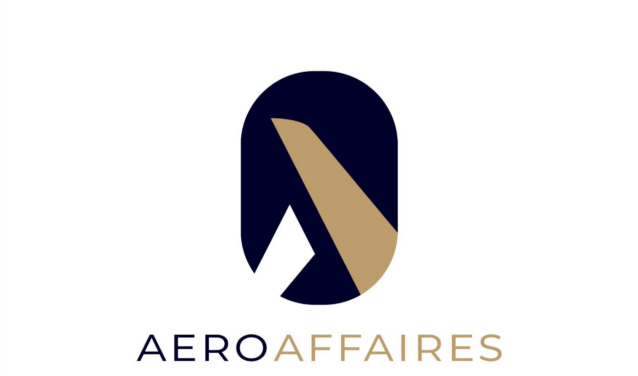Introduction to the sanctions compliance policy
AEROAFFAIRES is committed to complying with laws and legislation relating to trade and economic sanctions in all jurisdictions in which it operates. It does so insofar as they may apply to its activities, by identifying, mitigating and managing all risks of sanctions violations, both primary and secondary.
In this Sanctions Compliance Policy, “AEROAFFAIRES” refers to a SAS based in Paris.
Scope of the Sanctions Compliance Policy
This policy applies to :
- All officers, employees, staff and directors under contract to AEROAFFAIRES, and any other person designated by AEROAFFAIRES (each an “employee”).
- All legal and natural persons (and their officers, employees and directors) who provide services for or on behalf of AEROAFFAIRES, including: supply chain business partners, suppliers, consultants, contractors, distributors and agents/sales representatives (each referred to as an “associated person”).
As a condition of doing business with AEROAFFAIRES, the Company requires each Associate to agree to the incorporation of this Policy into the contract between the Associate and AEROAFFAIRES.
Agreements and contracts between AEROAFFAIRES and Associates may contain specific provisions dealing with some of the issues raised in this policy. It should be noted that nothing in this policy replaces a more specific provision or measure in a particular contract or agreement between AEROAFFAIRES and an associated person. If there is any inconsistency between this Sanctions Compliance Policy and any other provisions of a particular agreement or contract, the agreement or contract shall prevail.
This policy supplements, but does not replace, other AEROAFFAIRES codes of conduct, policies, rules and procedures applicable to Associates and employees. In case of doubt, if an associate or employee notices an inconsistency or conflict between this policy and any other AEROAFFAIRES codes, regulations or policies, that person should raise the matter with AEROAFFAIRES. The individual may seek advice from the AEROAFFAIRES Ethics and Compliance Department by sending an e-mail to: compliance@aeroaffaires.com. This policy is a statement of principles and expectations for personal and professional behaviour. It is not intended to be, nor does it constitute, a contract, employment agreement or representation of continued employment, nor does it authorise employees or related parties to do so. The application and interpretation of this policy is the sole responsibility of AEROAFFAIRES. This policy creates rights only for the benefit of AEROAFFAIRES. The headings contained in this policy are for guidance only and should not be construed as limiting or otherwise influencing the provisions of this policy. In the event of a conflict between this Policy and applicable governing law, the applicable governing law shall prevail.
Sanctions and Prohibited Practices
This policy sets out AEROAFFAIRES’ approach to identifying and managing the risks associated with sanctions, including:
- Guidance on the meaning of sanctions and how to comply with them.
- The principles and practices followed by AEROAFFAIRES to comply with sanctions laws and to identify, mitigate and manage the risks associated with sanctions in the jurisdictions in which it operates.
- Consequences of non-compliance with this policy.
This policy applies to all countries and/or jurisdictions in which AEROAFFAIRES operates and extends to all other countries and/or jurisdictions where AEROAFFAIRES commences operations and/or is registered under active licence or subscription.
Meaning of sanctions and how to comply with them
Sanctions are laws and regulations enacted by governments (such as the United States (U.S.) government), international organisations (such as the United Nations (UN) and supranational bodies (such as the European Union (EU)) to promote foreign policy and other objectives, which include:
- Limiting the negative consequences of an international situation (e.g. denying access to military goods, but also technologies or funding for international terrorism or the proliferation of weapons of mass destruction).
- Attempting to influence third parties or governments to change their behaviour.
- Penalising other persons/entities.
Sanctions should discourage all kinds of harmful activities, such as political or military aggression, providing sanctuary for criminals/terrorists, developing nuclear weapons programmes, and human rights violations.
These sanctions are implemented to prohibit companies and individuals from doing business with the persons, entities, countries and governments that are the targets of sanctions. These restrictions may include:
- Bans on exporting, importing and providing specific services.
- Prohibitions on certain business activities.
- Prohibition on the transfer of funds to or from a sanctioned country.
- Targeted financial sanctions, including freezing the assets of, and prohibiting transactions with, a government, country or territory, as well as targeted entities and individuals.
- Travel bans.
- Financial restrictions.
One method of imposing sanctions is to designate a country, territory, government, individual or entity as a target for sanctions. For example, the US publishes a list of Specially Designated Nationals (SDNs), which includes individuals and organisations. In general, persons subject to US jurisdiction must freeze all SDN assets in their possession or control and must not have any relationship with or provide any service to that SDN. The US also imposes economic sanctions and embargoes on geographic areas and governments. Some programmes are global in nature and block governments and include wide-ranging trade restrictions, while others target specific individuals and organisations. In non-global systems, there may be broad prohibitions on dealing with countries and also against specifically named individuals and organisations. Most sanctions regimes prohibit actions taken to circumvent existing sanctions or to facilitate the activities of another individual or entity that may be in violation of the sanctions. Employees and associates must take care not to inadvertently violate sanctions by facilitating or negotiating a transaction that would be prohibited if conducted by AEROAFFAIRES. Employees and associates may not facilitate, transact, approve, finance or negotiate any transaction or activity that would be prohibited if conducted by AEROAFFAIRES. The prohibition also includes referring a foreign national to business opportunities related to any country under global sanctions or to any person on the SDN list. Example: If an employee or a related person introduces a person from a sanctioned country (who is prohibited from doing business under the applicable sanctions) to a foreign national for the purpose of facilitating or promoting a business opportunity, the employee or related person would be in violation of the “facilitation” provision of the sanctions. Also, some sanctions regimes are extraterritorial, so they can be extended to persons abroad who cause a person in the country to violate the sanctions, such as by removing RDS identifying information from the money transfer or other commercial documents, so that a domestic person cannot properly review the transaction for sanctions violations.
AEROAFFAIRES’ Principles and Measures for Sanctions Compliance
Key principles
The following key principles govern AEROAFFAIRES’ approach to sanctions and controls. All the requirements of these regulations must be taken into account. In the event of a dispute between the principles and the requirements, the principles shall prevail.
- AEROAFFAIRES maintains a sanctions policy to meet the obligations of the sanctions regimes of the jurisdictions in which it operates, is registered and/or licensed.
- AEROAFFAIRES complies with the requirements of the US, UN and EU sanctions regimes (as they apply to its activities) wherever it operates and will not conduct any activities that violate these sanctions regimes.
- In addition to complying with the requirements of the US, UN and EU sanctions regimes (as they apply to its activities), AEROAFFAIRES complies with other sanctions regimes as they apply to specific AEROAFFAIRES activities and will not undertake any activities that violate these sanctions regimes.
- AEROAFFAIRES also takes into account the sanctions regimes imposed by other jurisdictions where the facts of the transaction are justified.
- AEROAFFAIRES may decide not to provide a product or service even to the extent permitted by law, when circumstances threaten its reputation.
- AEROAFFAIRES shall not undertake any activity that would violate the export laws applicable to it.
AEROAFFAIRES’ measures to comply with sanctions
Prior to entering into any business relationship or transaction, AEROAFFAIRES ensures that such relationships and transactions comply with the sanctions legislation applicable to both the United States, the United Nations and the European Union. While verifying that these persons or entities are on the SDN list and other relevant sanctions.
AEROAFFAIRES must verify that its transactions do not violate certain country-specific sanctions. The degree of screening and due diligence performed depends on the risk profile of the particular relationship or transaction, with increased screening and due diligence where the risk is higher. For example, where a relationship or transaction with an internationally recognised person or company in one or more countries is not sanctioned, a lower level of due diligence may apply.
Conversely, where a relationship or transaction is entered into with a person or company located in a risk jurisdiction, additional due diligence is required. As part of this check, AEROAFFAIRES may rely on information provided by its customers, passengers and business partners, unless it is known or suspected that these customers and business partners, or the information provided, is unreliable or dishonest, or that they are affiliated with a high risk jurisdiction.
AEROAFFAIRES also requires passengers to contractually agree to ensure that AEROAFFAIRES does not carry baggage or cargo in violation of applicable export control laws. For example, the United States controls the export of sensitive equipment, software and technology to advance the national security interests and foreign policy objectives of the United States.
The contract with the Related Person must include provisions (i) stating that the Related Person itself is not an SDN or subject to or liable for sanctions; (ii) requiring compliance with U.S., UN and EU sanctions laws and this Policy, (iii) requiring that the persons involved not engage in any commercial activity or failure to facilitate such activity could cause AEROAFFAIRES to violate any applicable punitive obligation ; and (iv) authorise AEROAFFAIRES to terminate the contract if the person concerned breaches his or her contract with AEROAFFAIRES or this policy, becomes an NDS or is sanctioned.
Neither AEROAFFAIRES nor any of its employees may enter into any commercial relationship or transaction involving directly or indirectly :
- Countries subject to or targeted by sanctions.
- Nationals of sanctioned countries.
Unless the proposed business relationship or transaction has been reviewed and approved in accordance with the sanctions review systems and procedures implemented by AEROAFFAIRES. For greater certainty, the fact that a country is a sanctioned country, or that a person is a national of the sanctioned country, does not automatically mean that AEROAFFAIRES or its employees may not enter into a business relationship.
If in doubt, always seek advice from the AEROAFFAIRES Compliance Officer (compliance@aeroaffaires.com) or the Chief Legal Counsel or COO/Manager without delay. From time to time, the employees concerned will be informed by AEROAFFAIRES of the sanctioned countries. As sanctions programmes are dynamic and constantly evolving, sanctioned countries can change rapidly; AEROAFFAIRES regularly reviews US, UN and EU sanctions policies and may update the list of sanctioned countries from time to time. The person concerned must also ensure that he or she does not enter into any business relationship or transaction directly or indirectly involving sanctioned or targeted countries and their nationals, unless the business relationship or transaction has been reviewed and cleared. In accordance with the applicable review procedures and the procedures implemented by each person involved. Affiliates should always have systems, processes, policies and procedures in place to ensure compliance with these rules. If there is any doubt that a business relationship or transaction of an Affiliate is in breach of this policy, the Affiliate should inform AEROAFFAIRES as soon as possible.
For the sake of clarity and for the avoidance of doubt :
- All business relationships and transactions, whether direct or indirect, involving sanctioned countries and nationals of sanctioned countries must be immediately cancelled and/or not proceeded with until they are reviewed and cleared to act in accordance with the applicable AEROAFFAIRES sanctions review systems, processes and procedures implemented by AEROAFFAIRES from time to time.
- Business relationships and transactions with persons not on a list of specially designated nationals may nevertheless be prohibited if such business relationship or transaction directly or indirectly involves sanctioned countries and nationals of sanctioned countries. In such cases, business relationships and transactions must also be immediately terminated and/or not be pursued until they are reviewed and cleared to act in accordance with the applicable AEROAFFAIRES sanctions control systems, processes and procedures that are implemented by AEROAFFAIRES from time to time.
Employees and associated persons shall not facilitate the activities of any person, including customers and passengers, involving sanctioned countries or nationals of sanctioned countries, including by referring such matters to other persons or entities.
Countries with which AEROAFFAIRES operates to limit risks
AEROAFFAIRES operates with countries, selecting according to the precautionary/dangerousness of the nation. AEROAFFAIRES uses the Travel Advisories provided by travel.state.gov. AEROAFFAIRES selects according to the ranking and information provided by Travel State for each country. The company operates with nations classified as level 1 and 2. It does not operate with nations classified as level 3 and 4 risks, and therefore limits the risks.
The classification is made as follows:
- Level 1: Exercise Normal Precautions
- Level 2: Exercise Increased Caution
- Level 3: Reconsider Travel
- Level 4: Do Not Travel
Obligations for all employees and associates
Employees and associates must read and apply this policy and must ensure that they comply with it.
The relevant AEROAFFAIRES units and/or departments that deal with customers, passengers, suppliers and other partners (or business associates) must screen and pre-screen each entity and actor. If there is any doubt about the due diligence of such a person or entity, contact the AEROAFFAIRES Compliance Department or the person in charge by email.
No employee or related person should ever act to avoid obligations related to the punishment or discovery of a relationship or transaction that violates this policy.
AEROAFFAIRES, its employees and stakeholders may not advise customers or others on how transactions may be conducted, structured or presented in order to circumvent applicable sanctions or policies. This includes, but is not limited to, advising customers, passengers or other entities to alter information or documents and include false or misleading facts, omit accurate information, or alter, delete or omit information from the transaction or any business record that could help identify a sanctions concern.
Employees and related entities may be subject to applicable sanctions laws of both the country or nation in which they live and work. Also of the country or countries of which they are citizens, permanent residents or visa holders. In addition, being present in a single country, even for a short period of time, often requires the employee or person concerned to comply with the laws of that country when entering or transiting through it. It is the responsibility of each employee and related person to understand and comply with their obligations regarding sanctions, either as a citizen of a particular country or because of their presence in a particular nation.
Requests regarding specific cases should be addressed directly to AEROAFFAIRES compliance@aeroaffaires.com. Depending on the case, AEROAFFAIRES may require the employee or person concerned to adhere to certain practices in order to ensure that all parties comply with the applicable sanctions.
Consequences of non-compliance with sanctions
Failure to comply with punitive laws would constitute a breach of legal and/or regulatory requirements and could expose AEROAFFAIRES to reputational damage, legal and regulatory action and financial loss, and could subject the individual employee or persons involved in any of the violations to substantial fines and imprisonment. AEROAFFAIRES takes a zero tolerance approach to intentional violations of this policy or applicable penalty regimes.
If employees fail to comply with this policy, they may be subject to disciplinary action up to and including dismissal. Disciplinary action will depend on the circumstances of the violation and will be applied in a manner consistent with AEROAFFAIRES’ policies.
In addition, employees who violate the law in the work process may be subject to criminal and civil liability. AEROAFFAIRES may terminate a business relationship with an Affiliate by written notice of any kind or nature to the Registrant relating to the foregoing. Contributor fails to comply with any provision of this policy and fails to remedy (if such violation is remediable) such violation within 10 days of the date of written notification of such violation to contributors.
Audit, revisions and questions
Each person who has a complimentary relationship with AEROAFFAIRES, shall provide access (subject to appropriate notice from AEROAFFAIRES) to all related documents, records, systems, processes, policies and procedures to enable AEROAFFAIRES (or a third party professional representative) to inspect and verify the contributor’s compliance with this policy. If an audit reveals that the Affiliate has violated this Policy, the Affiliate shall, without delay, take the necessary corrective action (if the violation is correctable) as determined by AEROAFFAIRES.
AEROAFFAIRES will unilaterally review this policy on a regular basis, at its sole discretion, and make any necessary or appropriate changes. From time to time, AEROAFFAIRES may also issue advertisements, guidelines and memoranda to supplement this Policy. The most recent version of this Policy will be available at all times online at (https://aeroaffaires.com/sanctions-compliance-policies), as well as on AEROAFFAIRES’ internal online system as in effect from time to time and for all to access. It is the responsibility of employees and stakeholders to access these online systems and to review the latest version of this policy and all programmes, guidelines and memoranda from time to time. As sanctions regimes are subject to rapid change without notice, AEROAFFAIRES may update this policy at any time. For any information requests or other questions regarding this policy, AEROAFFAIRES can be contacted via: compliance@aeroaffaires.com.
Reporting policy violations
AEROAFFAIRES is fully committed to developing a culture of free speech. This means that employees and associates can speak freely and openly if something is wrong or needs to be corrected. Employees and associates should feel comfortable expressing their views, opinions, asking questions, reporting problems, expressing their feelings or reporting perceived violations of this policy. If someone witnesses violations (suspected or actual) of this policy or if the person becomes aware that AEROAFFAIRES or a third party has engaged in a transaction prohibited by these sanctions, he or she should report these concerns promptly following the reporting procedure (available online at https://aeroaffaires.com/sanctions-compliance-policies).
Confirmation of the policy
If requested by AEROAFFAIRES, employees and associated persons must individually confirm in writing to the company that they have read this policy and agree to comply with it.





